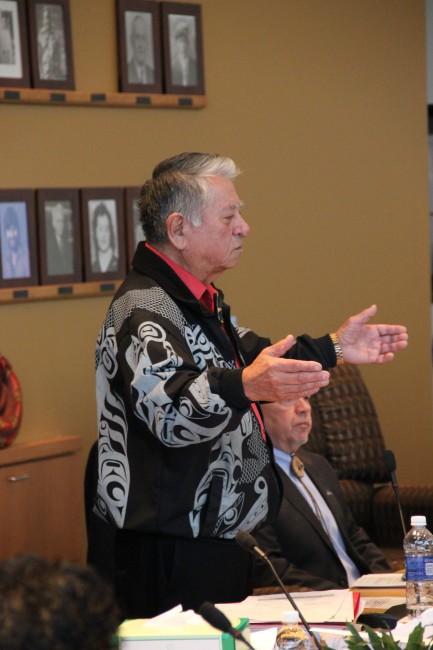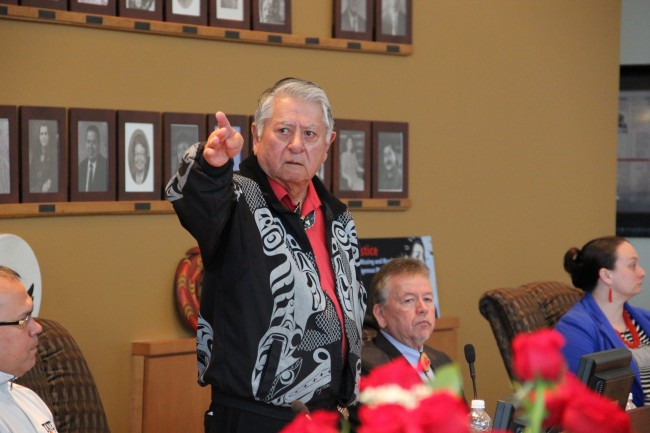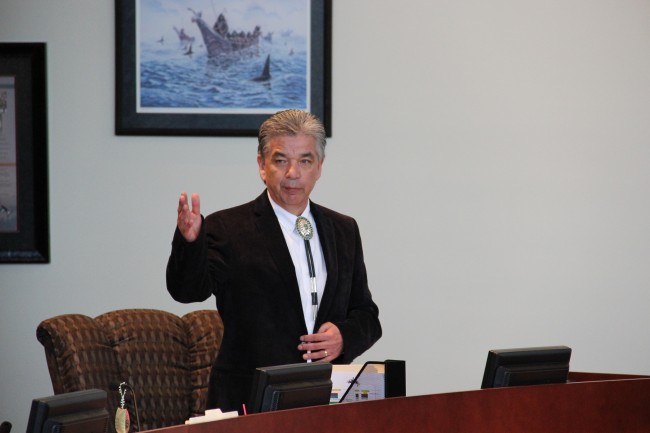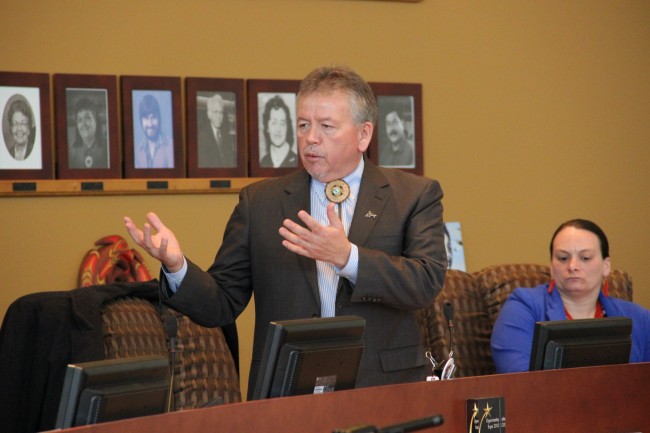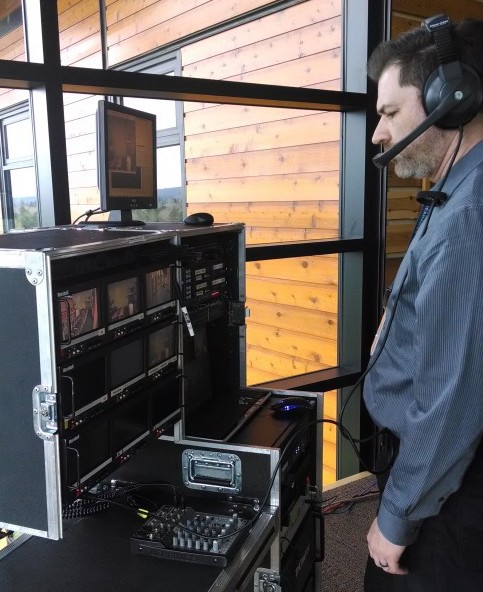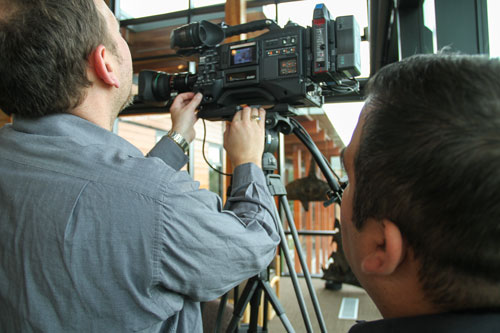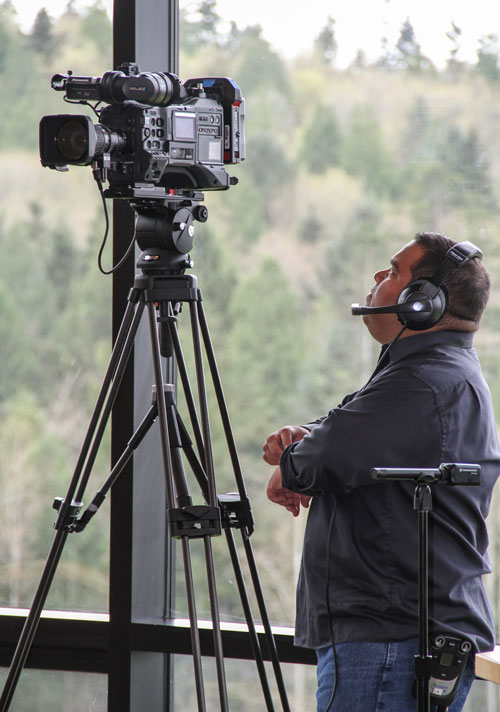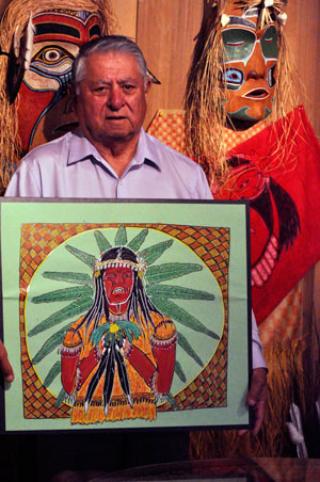Washington’s people and environment potentially at risk
Press Release: Washington State Department of Natural Resources
OLYMPIA – Increased oil train traffic on Washington’s aging rail system puts the state’s people and ecosystems at risk, according to an opinion piece by ten tribal leaders and the Washington State Commissioner of Public Lands Peter Goldmark, published today in the Seattle Times.
“Crude By Rail: Too Much, Too Soon” calls for federal regulators to improve safety protocols and equipment standards on Washington rail lines to deal with a forty-fold increase in oil train traffic since 2008. Trains carrying crude oil are highly combustible and, if derailed, present serious threats to public safety and environmental health.
Tim Ballew II, chairman of the Lummi Nation; Jim Boyd, chairman of the Confederated Tribes of the Colville Reservation; Brian “Spee~Pots” Cladoosby, chairman of the Swinomish Indian Tribal Community; William B. Iyall, chairman of the Cowlitz Indian Tribe; Maria Lopez, chairwoman of the Hoh Indian Tribe; David Lopeman, chairman of the Squaxin Island Tribe; Fawn Sharp, president of the Quinault Indian Nation; Charles Woodruff, chairman of the Quileute Tribe; Herman Williams Sr., chairman of the Tulalip Tribes; and Gary Burke, chairman of the Board of Trustees of the Confederated Tribes of the Umatilla Indian Reservation joined Commissioner Goldmark in urging policymakers to address critical issues around the increase of oil train traffic through the state.
“The Northwest has suffered from a pollution-based economy,” said Cladoosby in a statement. “We are the first peoples of this great region, and it is our responsibility to ensure that our ancestral fishing, hunting and gathering grounds are not reduced to a glorified highway for industry. Our great teacher, Billy Frank, Jr., taught us that we are the voices of the Salish Sea and salmon, and we must speak to protect them. If we cannot restore the health of the region from past and present pollution, how can we possibly think we can restore and pay for the impact of this new and unknown resource?
“We are invested in a healthy economy, but not an economy that will destroy our way of life. We will not profit from this new industry, but rather, we as citizens of the Northwest will pay, one way or another, for the mess it will leave behind in our backyard. We will stand with Commissioner Goldmark and our fellow citizens and do what we need so those who call this great state home will live a healthy, safe and prosperous life,” said Cladoosby.
“Good public policy demands that we make informed decisions using information based on the best science and perspective that must include cultural values and traditional knowledge,” said Quinault President Fawn Sharp. According to her statement, the Quinault Tribe is leading a movement against three oil terminals in Grays Harbor and most recently joined more than 700 Washington state citizens to testify at an October hearing held by the Department of Ecology.
“The Quinault are national leaders of long-standing in natural resources protection and strive to protect the oceans and waterways across the Northwest,” said Sharp.
For Tulalip Chairman Herman Williams, Sr., endangerment of fish runs by oil train pollution is a key concern.
“For generations we have witnessed the destruction of our way of life, our fishing areas, and the resources we hold dear,” said Williams in a statement. “The Boldt decision very clearly interpreted the 1855 Treaty of Point Elliott to reserve 50 percent of the salmon and management to the tribes. The federal government must now partner with tribes to protect the 50 percent of what remains of our fishing rights. The Tulalip Tribes will not allow our children’s future to be taken away for a dollar today. Our treaty rights are not for sale,” said Williams.
According to Commissioner Goldmark, tribal leadership on the oil train issue is essential.
“Tribal leaders bring unique perspective and concern about threats to our treasured landscapes,” said Goldmark. “It’s an honor to join them in this important message about the growth of oil train traffic in our state and the threat it poses to public safety, environmental sustainability, and our quality of life.”


